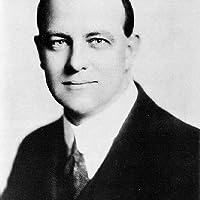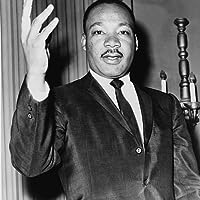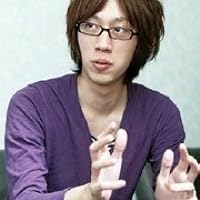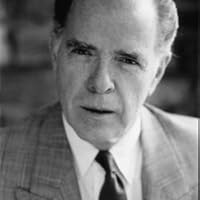Urban Life Quotes
Quotes tagged as "urban-life"
Showing 1-30 of 76

“I didn’t tell him that I grew up in an ugly city that taught me how to look between dust and rubbish and potholes to find a splinter of glass that looked like unmelting ice, beautiful in its defiance of the sun.”
― Kartography
― Kartography
“Non ho atteso una risposta ai miei quesiti e sono rimasta seduta dov’ero, pronta ad alzarmi e ballare da sola sul brano seguente, che mi auguravo non essere un lento. In effetti, questo è forse il più grande difetto che si potrebbe imputarmi. Mi è sempre piaciuto pensarmi legata a un passato che non ho mai conosciuto, imprigionata in un tempo che non mi appartiene, ma sono solo un’esponente della mia generazione, e la mia generazione va di fretta. I lenti, a quanto pare, non li conosce più.”
― I Dissidenti
― I Dissidenti
“Street culture is a culture of containment. Most young people do not realize that it all too often leads to a “dead end”. “Street culture,” as I am using the term, is a counterforce to movement culture. Street culture in contemporary urban reality is synonymous with survival at all costs. This world view is mostly negative, because it demands constant adjustment to circumstances that are often far beyond young people’s control or understanding, such as economics, education, housing, employment, nutrition, law, and so forth.”
―
―

“From the time I arrived in British East Africa at the indifferent age of four and went through the barefoot stage of early youth hunting wild pig with the Nandi, later training racehorses for a living, and still later scouting Tanganyika and the waterless bush country between the Tana and Athi Rivers, by aeroplane, for elephant, I remained so happily provincial I was unable to discuss the boredom of being alive with any intelligence until I had gone to London and lived there for a year. Boredom, like hookworm, is endemic.”
― West with the Night
― West with the Night
“A city is simply a passel of people packed in a pot like pickles.”
― Allegiance: Fort Sumter, Charleston, and the Beginning of the Civil War
― Allegiance: Fort Sumter, Charleston, and the Beginning of the Civil War

“My life had indeed become meaningless to me. Even lack of sleep was not a concern for me; only hunger remained a sensation worthy of articulation. Once that hunger was assuaged, I would return to my inert state.”
― The Ghosts of Meenambakkam
― The Ghosts of Meenambakkam

“Living in a city shouldn't make you cynical and living in a village shouldn't make you vulnerable.”
― Wealth of Words
― Wealth of Words
“During the second half of the sixties, the center of the crisis shifted to the sprawling ghettos of the North. Here black experience was radically different from that in the South. The stability of institutional relationships was largely absent in Northern ghettos, especially among the poor. Over twenty years ago, the black sociologist E. Franklin Frazier was able to see the brutalizing effect of urbanization upon lower class blacks : ". . . The bonds of sympathy and community of interests that held their parents together in the rural environment have been unable to withstand the disintegrating forces in the city." Southern blacks migrated North in search of work, seeking to become transformed from a peasantry into a working class. But instead of jobs they found only misery, and far from becoming a proletariat, they came to constitute a lumpenproletariat, an underclass of rejected people. Frazier's prophetic words resound today with terrifying precision: ". . . As long as the bankrupt system of Southern agriculture exists, Negro families will continue to seek a living in the towns and cities of the country. They will crowd the slum areas of Southern cities or make their way to Northern cities, where their family life will become disrupted and their poverty will force them to depend upon charity."
Out of such conditions, social protest was to emerge in a form peculiar to the ghetto, a form which could never have taken root in the South except in such large cities as Atlanta or Houston. The evils in the North are not easy to understand and fight against, or at least not as easy as Jim Crow, and this has given the protest from the ghetto a special edge of frustration. There are few specific injustices, such as a segregated lunch counter, that offer both a clear object of protest and a good chance of victory. Indeed, the problem in the North is not one of social injustice so much as the results of institutional pathology. Each of the various institutions touching the lives of urban blacks—those relating to education, health, employment, housing, and crime—is in need of drastic reform. One might say that the Northern race problem has in good part become simply the problem of the American city—which is gradually becoming a reservation for the unwanted, most of whom are black.”
― Down the Line: The Collected Writings of Bayard Rustin
Out of such conditions, social protest was to emerge in a form peculiar to the ghetto, a form which could never have taken root in the South except in such large cities as Atlanta or Houston. The evils in the North are not easy to understand and fight against, or at least not as easy as Jim Crow, and this has given the protest from the ghetto a special edge of frustration. There are few specific injustices, such as a segregated lunch counter, that offer both a clear object of protest and a good chance of victory. Indeed, the problem in the North is not one of social injustice so much as the results of institutional pathology. Each of the various institutions touching the lives of urban blacks—those relating to education, health, employment, housing, and crime—is in need of drastic reform. One might say that the Northern race problem has in good part become simply the problem of the American city—which is gradually becoming a reservation for the unwanted, most of whom are black.”
― Down the Line: The Collected Writings of Bayard Rustin

“To have to come and live in New York! To have to leave my little cottage and take a stuffy, smelly, over-heated hole of an apartment in this Heaven-forsaken, festering Gehenna. To have to mix night after night with a mob who think that life is a sort of St. Vitus's dance, and imagine that they're having a good time because they're making enough noise for six and drinking too much for ten.”
― The Aunt and the Sluggard
― The Aunt and the Sluggard

“The problem is everyone, even Black people, believes that Black poverty is the worst poverty in the world, and Black urban poverty, forget it, and all urban Blackness always scans as poverty, which means people only love us as fetish. No one is sentimental about poor Black people unless they're wise and country and you could put a photograph of them on a porch with a quilt behind them in a museum.”
― The Office of Historical Corrections
― The Office of Historical Corrections
“The Sydney of this time was a different place to the honeymoon city I'd visited with Damien. That one was the crescent of the bridge, the rolling waves beneath the ferry, the shaded streets in The Rocks where we'd bought touristy postcards to send home. Everywhere was so lush, everything blue and green. This Sydney was more or less the space between Campsie and Dulwich Hill. Suburban streets, 7-Eleven hot chocolate, stream, car fumes, perc in my nose and throat, light dancing across the scratched Perspex of train window.”
― Bodies of Light
― Bodies of Light

“Our cities have constructed elaborate expressways and elevated skyways, and white Americans speed from suburb to inner city through vast pockets of black deprivation without ever getting a glimpse of the suffering and misery in their midst.
But while so many white Americans are unaware of conditions inside the ghetto, there are very few ghetto dwellers who are unaware of the life outside. Their television sets bombard them day by day with the opulence of the larger society. From behind the ghetto walls they see glistening towers of glass and steel springing up almost overnight. They hear jet liners speeding over their heads at six hundred miles an hour. They hear of satellites streaking through outer space and revealing details of the moon.
Then they begin to think of their own conditions. They know that they are always given the hardest, ugliest, most menial work to do. They look at these impressive buildings under construction and realize that almost certainly they cannot get those well-paying construction jobs, because building trade unions reserve them for whites only. They know that people who built the bridges, the mansions and docks of the South could build modern buildings if they were only given a chance for apprenticeship training. They realize that it is hard, raw discrimination that shuts them out. It is not only poverty that torments the Negro; it is the fact of poverty amid plenty. It is a misery generated by the gulf between the affluence he sees in the mass media and the deprivation he experiences in his everyday life.”
―
But while so many white Americans are unaware of conditions inside the ghetto, there are very few ghetto dwellers who are unaware of the life outside. Their television sets bombard them day by day with the opulence of the larger society. From behind the ghetto walls they see glistening towers of glass and steel springing up almost overnight. They hear jet liners speeding over their heads at six hundred miles an hour. They hear of satellites streaking through outer space and revealing details of the moon.
Then they begin to think of their own conditions. They know that they are always given the hardest, ugliest, most menial work to do. They look at these impressive buildings under construction and realize that almost certainly they cannot get those well-paying construction jobs, because building trade unions reserve them for whites only. They know that people who built the bridges, the mansions and docks of the South could build modern buildings if they were only given a chance for apprenticeship training. They realize that it is hard, raw discrimination that shuts them out. It is not only poverty that torments the Negro; it is the fact of poverty amid plenty. It is a misery generated by the gulf between the affluence he sees in the mass media and the deprivation he experiences in his everyday life.”
―

“Deep underground, microbes turn half a century's worth of city waste into methane. The gases and leachate are extracted through an extensive network of subterranean pipes and then used to power 22,000 nearby homes. While 150 million tons of garbage gradually decomposes unseen below the surface, above ground, the former dump reverts to meadows, woodland and saltwater marshes, providing a haven for wildlife and a massive park for the people of New York.
This is Fresh Kills in the 2020s. In 2001, the infamous landfill received its last, and saddest, consignments - the charred debris of the World Trade Center. Since then, it has been transformed into a 2,315-acre public park. Three times bigger than Central Park, it is the largest new green public space created within New York City for over a century, a mixture of wildlife habitats, bike trails, sports fields, art exhibits and playgrounds. This is poisoned land: fifty years' worth of landfill has killed for ever one of the city's most productive wetland ecosystems. Restoration is impossible. Instead, a brand new ecosystem is emerging on top of the toxic garbage”
― Urban Jungle: The History and Future of Nature in the City
This is Fresh Kills in the 2020s. In 2001, the infamous landfill received its last, and saddest, consignments - the charred debris of the World Trade Center. Since then, it has been transformed into a 2,315-acre public park. Three times bigger than Central Park, it is the largest new green public space created within New York City for over a century, a mixture of wildlife habitats, bike trails, sports fields, art exhibits and playgrounds. This is poisoned land: fifty years' worth of landfill has killed for ever one of the city's most productive wetland ecosystems. Restoration is impossible. Instead, a brand new ecosystem is emerging on top of the toxic garbage”
― Urban Jungle: The History and Future of Nature in the City
“Every Friday evening since the late sixties, at 5:00 p.m. we'd walk into the nearby Brompton Cemetery, which, since its four corners connect Fulham, Chelsea, South Kensington, and Earl's Court, was a convenient meeting point for all our friends. We'd plan our weekend on the grave of Admiral Angus Whitewater. We didn't know the Admiral, he just happened to have an impressive horizontal slab of black marble over his last resting place, which made a great table for drinks.”
―
―

“A place that is extremely urban, wholly metropolitan, with a lot of huge buildings built in symmetrical grids smudged with the filthy smog, lights stubbornly flickering through the windows even after midnight.”
― Blanks & Blues
― Blanks & Blues

“B the spring of 1848, the religious climate was still unsettled and ripe for progressive new ideas. America's cities were expanding, its populations swelling with immigrants from Ireland and Europe, its factories and ports booming all of which contributed to a rising mortality rate.”
― The Reluctant Spiritualist: A Life of Maggie Fox
― The Reluctant Spiritualist: A Life of Maggie Fox

“I found Baghdad, like most big cities in the world: big, exciting, interesting, rich, poor, hot, cold, restless, sleepless, and cruel at one and the same time.”
―
―

“My family has a farm, so from time to time my folks send me loads of vegetables. But as a creature of a consumer society, I prefer store bought bread and chocolates.”
― Solanin
― Solanin

“I have no idea what to do with myself. And while I wait for my epiphany, I feel the toxins collecting in my body. But I'm still young and dissatisfied. Constantly disgruntled by society and adults. I'm just your average worker in Tokyo.”
― Solanin
― Solanin
“Truth is, for every galaxy that far surpasses every planet, there is a Hood. In every Hood, there is birthed a remnant of greatness and uniqueness like no other. Against all odds, that remnant shall be a mighty force that changes the game”!”
― A Sovereign Pursuit: Stolen Justice Redeemed Limited Edition with Illustration's
― A Sovereign Pursuit: Stolen Justice Redeemed Limited Edition with Illustration's

“Country people are much more friendly that town people. I suppose they don't have to spread their friendly feelings out over so many persons, so it's thicker, like a pound of butter on one loaf than on a dozen. Friendliness in the country is not scrape, like it is in London.”
― The Wouldbegoods
― The Wouldbegoods

“She starts thinking how the city’s peaceful aura withers and gives birth to its decrepit personality.”
― Tajrish
― Tajrish
“In the diverse gallery of urban surprises, spotting a crocodile inside a swimming pool is just another masterpiece on the canvas of quirky city life.”
―
―

“Smelled like home. Stink permeates homelessness: the smell of trash, the smell of dirty streets, of fire bins and piss and other people's body odor, the wet dog smell that saturates your clothes and bedding, the smell of rust and dirt and decay.”
― Where the Monsters Live
― Where the Monsters Live
“এসো করো স্নান নবধারাজলে— বলবে কে আর?
শহরে বৃষ্টি জলকাদামাখা নোংরা দেদার,
গীতবিতানের শুকনো পাতায় বর্ষার গান
রবীন্দ্রনাথ একলা ভেজেন, আমাকে ভেজান।
নীপবন নেই, শহরে রয়েছে কড়া নলবন
সিরিয়ালে দেখা হিরো-হিরোইন সাজানো দুজন,
পেডাল নৌকো শহুরে লেকের প্রমোদতরী
এসো হে আষাঢ়, ছাতায় তোমায় বরণ করি!”
―
শহরে বৃষ্টি জলকাদামাখা নোংরা দেদার,
গীতবিতানের শুকনো পাতায় বর্ষার গান
রবীন্দ্রনাথ একলা ভেজেন, আমাকে ভেজান।
নীপবন নেই, শহরে রয়েছে কড়া নলবন
সিরিয়ালে দেখা হিরো-হিরোইন সাজানো দুজন,
পেডাল নৌকো শহুরে লেকের প্রমোদতরী
এসো হে আষাঢ়, ছাতায় তোমায় বরণ করি!”
―

“Cities really are different. They make a weight on the world, a fear in the fabric of reality.”
― The City We Became
― The City We Became
All Quotes
|
My Quotes
|
Add A Quote
Browse By Tag
- Love Quotes 97k
- Life Quotes 75.5k
- Inspirational Quotes 72.5k
- Humor Quotes 43.5k
- Philosophy Quotes 29.5k
- Inspirational Quotes Quotes 27k
- God Quotes 26k
- Truth Quotes 23.5k
- Wisdom Quotes 23.5k
- Romance Quotes 23k
- Poetry Quotes 22k
- Death Quotes 20k
- Happiness Quotes 18.5k
- Life Lessons Quotes 18.5k
- Hope Quotes 18k
- Faith Quotes 18k
- Quotes Quotes 16.5k
- Inspiration Quotes 16.5k
- Spirituality Quotes 15k
- Religion Quotes 15k
- Motivational Quotes 15k
- Writing Quotes 14.5k
- Relationships Quotes 14.5k
- Life Quotes Quotes 14k
- Love Quotes Quotes 13.5k
- Success Quotes 13.5k
- Time Quotes 12.5k
- Motivation Quotes 12k
- Science Quotes 11.5k
- Knowledge Quotes 11k





